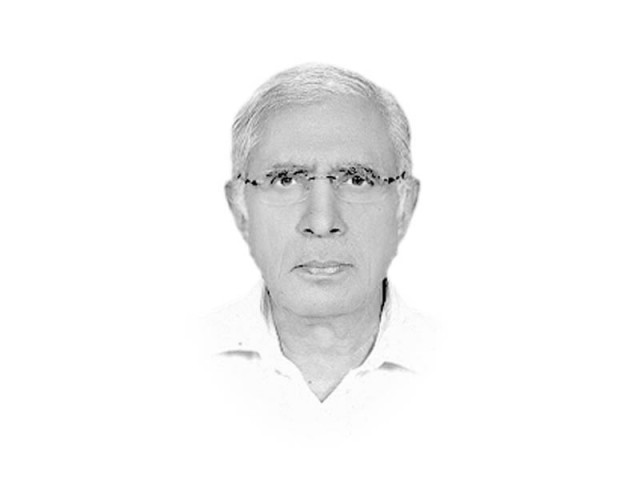‘Decent Capitalism’
Between APTMA, sugar millers, they seem to have decided to secure, promote their profits even at the cost of Pakistan.

The writer is Executive Editor of The Express Tribune
Most of our first-generation big businesses are the product of either the PIDC or the great grab of evacuee properties. And all throughout the three decades leading to the 1980s, it was the bank equity system of 30:70. And then the clandestine system of over-invoicing of imported machinery, under-invoicing of exports, floating of shares and raking in profits as stock prices were manipulated upward and downward. In short, you end up owning a production unit costing millions without investing a single rupee of your own.
The second generation of our big businesses was even luckier. They could buy a nationalised bank or a production unit with bank loans obtained without collaterals. Then there was this cost-plus formula to let these homemade entrepreneurs pass up imported inflation to the final consumer. Misusing the facility, one association of manufacturers hiked the prices of their products manifold by simply escalating the cost of their imported packaging material.
One well-informed politician once told me that for some reason, it was decided at the state level in the 1980s to raise one whole new generation of ‘entrepreneurs’, with one of the intelligence agencies tasked to identify the ‘right’ persons and then facilitate them to join our big business tribe. One such person was the Karachi banker, the infamous Younas Habib.
And once they acquired political power, they ‘progressed’ even more quickly. They made money using their political power and using this money, they have since been prospecting for absolute power. To expect such persons to pay their taxes honestly and not pilfer power, gas and water is like expecting a kleptomaniac to willingly overcome his infirmity.
This is the tribe that is expected to buy the public units on the privatisation block and run them profitably with some conjured-up efficiency, which our private sector has never demonstrated. For example, the textile industry has always remained in the hands of the private sector. It was never nationalised. Not only that, Pakistan being the world’s fourth largest cotton producer, the industry had a clear comparative advantage over many textile producers in the world except China, India and the US. But look at the miserably low level of value addition it has succeeded in achieving in all these 66 years. And that too after having forced successive governments to impose a heavy duty on cotton export and frequently obtaining –– virtually at gunpoint –– rebate on its low value-added export to escape profit margin reduction due to exchange rate fluctuations.
The All Pakistan Textile Manufacturers Association (APTMA) is politically the most powerful club of big businesses in the country followed by sugar mill owners. Between the two, they perhaps own the entire country. And between them, they seem to have decided to secure and promote their profits even if it meant that it is at the cost of Pakistan itself. That is why their representatives sitting in parliament never let any measure, aimed at either eliminating their undeserving concessions or introducing distributive justice in allocations, get through.
The situation is not likely to change as long as we continue to make our economic policies based on the model crafted by people having no idea about our inherent weaknesses and our comparative advantages. So, let us make our own home-grown model. We can glean a number of fresh ideas from the new economic literature that has come out in recent years. Some of these new books are discussing ideas about the economy of tomorrow. Some have talked about decent capitalism. In simple terms, the last one means a regulated market economy.
“In a nutshell: the market is a good servant, but a bad master. It must be given clear tasks, clear rules and clear limits.”
–– Excerpt from a recent book titled Decent Capitalism: A Blueprint For Reforming Our Economies by Sebastian Dullien, Hansjorg Herr and Christian Kellermann.
Published in The Express Tribune, March 5th, 2014.
Like Opinion & Editorial on Facebook, follow @ETOpEd on Twitter to receive all updates on all our daily pieces.



















COMMENTS
Comments are moderated and generally will be posted if they are on-topic and not abusive.
For more information, please see our Comments FAQ